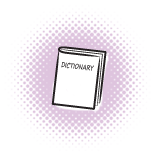Write for Success
The examiner wants to give you points! Make it easy for them by writing in a way that’s easy to read and understand.
General writing tips:

- Use good grammar and punctuation: this is very important. Get a good grammar book and take it seriously.
- Improve spelling: work on your spellings by using a dictionary, taking care and learning from your mistakes.
- Build up your vocabulary: Learn new words and use them.
- Do lots of reading: this is the best way to learn to write. See how the experts do it, then do it yourself.
- Paragraph your writing: use one paragraph per point.
- Write clearly and concisely: nobody wants to read waffle. Stick to the point.
- Practise, practise, practise: there’s no better way to improve.
- Write a little every day: writing is a skill that can be learned and doing a little every day builds up the skill.
Writing a well structured essay style answer:

- Plan to succeed: bullet point the main points you want to cover and organise the structure of your answer, i.e. in what order you will present those points.
- A killer opening: start with an introductory paragraph stating what your answer will contain and your stance on the question.
- Remember structure: keep your answer clear and structured, following your plan.
- Use paragraphs: write in clear, concise paragraphs.
- Back up points: explain your point and back it up with evidence from the text in front of you or from what you have learned on your course.
- Evaluate: sum up what is important and give some personal opinion on your topic. Your opinion is valuable and valued.
- End well: End with a concluding paragraph which sums up the main points of your answer again and leave a lasting last impression.
For more study tips, read Shortcuts to Success: Study and Exam Skills for Leaving Certificate by Irene Togher.